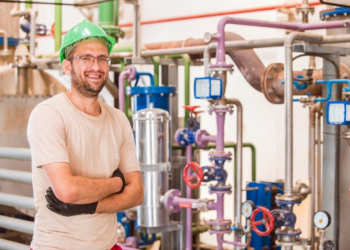Do you know the impact of weather on window cleaning? Many of us underestimate the role of weather conditions in keeping our windows clean. The fact is that different weather conditions can significantly impact the effectiveness of window cleaning. In this post, we’ll explore the various ways in which weather affects window cleaning, and provide you with some tips to get those sparkling clean windows.
Rain, Rain, Go Away
We all know that rain can be a pain, especially when it comes to cleaning windows. Many people assume that rain can clean windows, but the truth is that rainwater can make windows even dirtier. Rainwater sometimes contains pollutants and dirt, which can leave streaks and marks on windows, making them even harder to clean.
So, what should you do if it rains after you’ve just cleaned your windows? Don’t worry, there are some simple tips to help you deal with this. Firstly, wait until the rain has stopped completely before cleaning your windows. This will prevent further streaks and marks from forming on the glass. Second, use a squeegee to remove excess water from the windows before wiping them down with a cloth. This will help to prevent any water from being left on the glass, which can cause more streaks.
Wind Blows, But So Can Your Cleaning Solution
Wind can be another big factor that can impact the effectiveness of window cleaning. If you’re using a cleaning solution, the wind can blow the solution away from the window before it has a chance to do its job. This can leave your windows looking streaky and dirty.
So, what can you do about it? First, you can use a spray bottle instead of a bucket to avoid spills. This will ensure that the cleaning solution is applied directly to the window, rather than being blown away by the wind. And then you can choose a cleaning solution that is specifically designed for windy conditions. These solutions have a higher viscosity and are less likely to be blown away by the wind.
The Perfect Temperature
Did you know that temperature can also have a significant impact on the effectiveness of window cleaning? If the temperature is too high or too low, it can affect the effectiveness of cleaning solutions and leave streaks on windows.
The optimal temperature for window cleaning is typically between 40 and 70 degrees Fahrenheit. If the temperature is too high, the cleaning solution can evaporate too quickly, leaving streaks on the glass. If the temperature is too low, the cleaning solution can freeze, which can cause streaks and make it harder to clean the windows.
So, what’s to be done if the temperature is extreme? If it’s a hot day, try to clean your windows in the morning or evening when the temperature is cooler. If it’s a cold day, use warm water and a cleaning solution that is designed for colder temperatures. This will ensure that the cleaning solution doesn’t freeze and leave streaks on your windows.
When It’s Snowing, Window Cleaning’s Not Showing
Cleaning windows during a snowstorm or immediately after it has ended is not recommended. Snow can cause safety hazards when it comes to window cleaning, especially if there is ice on the surface. Slippery footing and falling icicles can pose a threat to your safety.
If you need to clean your windows during the winter months, it’s best to wait for the snow to melt before you start. You can also use a specialized snow removal tool to clear the snow from the windows before cleaning them. This will help to ensure that you’re safe while cleaning your windows.
Say Goodbye to Streaks and Humidity Woes
Humidity is also a common problem that many homeowners face when it comes to window cleaning. High humidity levels can make it difficult for cleaning solutions to evaporate quickly, leaving behind streaks on your windows. This can be frustrating, especially when you’re trying to achieve a sparkling clean finish.
To overcome this issue, it’s important to choose a cleaning solution that is specifically designed for humid conditions. These solutions contain ingredients that help to evaporate quickly, leaving behind a streak-free finish. Additionally, you can also try cleaning your windows on a day with lower humidity levels. You can check the humidity levels in your area using a hygrometer, which is a device that measures the amount of moisture in the air.
Your Window Worries End Here
Sometimes, despite our best efforts, window cleaning can be a daunting and time-consuming task. It’s especially true for larger homes with many windows, high-rise buildings, or commercial properties. In such cases, getting professional help is the smart decision. Not only will it save you time and energy, but it will also ensure that your windows are cleaned safely and effectively.
Professional window cleaning companies have the necessary tools and equipment to handle even the most challenging cleaning jobs. They have access to specialized cleaning solutions that can clean even the toughest stains and buildup, leaving your windows looking brand new. And they have the experience and knowledge to clean windows safely, even in high-rise buildings, without the risk of injury or damage to your property.
Conclusion
Keeping your windows clean requires more than just a bucket of soapy water and a sponge. It’s essential to consider the impact of weather conditions such as rain, wind, temperature, snow, and humidity. By following the tips we’ve provided, you can ensure that your windows remain streak-free and sparkling clean. And remember, when window cleaning becomes too challenging, don’t hesitate to call in the professionals. With their expertise and specialized equipment, they can give you the peace of mind that comes with knowing your windows are in good hands.









